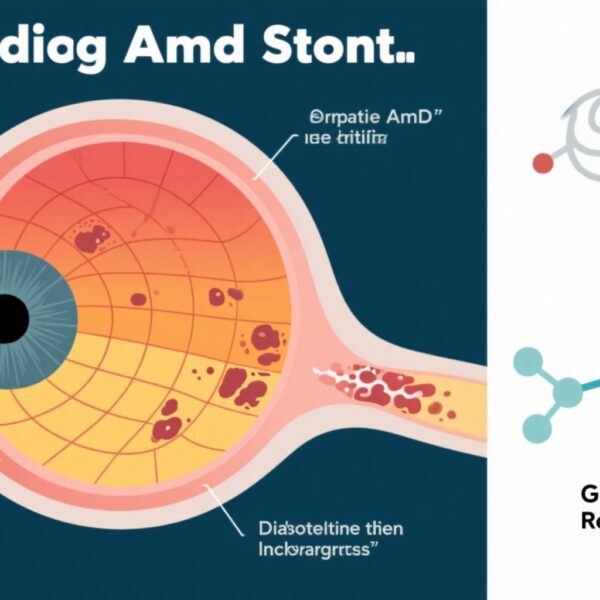Highlight
- Among seven antipsychotics studied in over 3,000 acutely ill schizophrenia patients, olanzapine and risperidone demonstrated superior symptom reduction compared to aripiprazole, ziprasidone, and quetiapine.
- Olanzapine posed the highest risk for weight gain; aripiprazole was least associated with hyperprolactinemia and sedation.
- Typical antipsychotic haloperidol was linked to the greatest extrapyramidal symptom burden, whereas newer agents had better tolerability profiles.
- Discontinuation rates were lowest with olanzapine and risperidone, suggesting better acceptability during acute episodes.
Study Background
Schizophrenia is a chronic, severe mental disorder characterized by psychotic episodes that substantially impair cognitive, social, and occupational functioning. Antipsychotic medications remain the cornerstone of treatment, particularly crucial during acute exacerbations to rapidly control psychosis and reduce relapse risk. Despite decades of antipsychotic drug development, controversies persist regarding the comparative efficacy and side effect profiles of available agents. Contemporary treatment guidelines acknowledge efficacy differences among antipsychotics but offer only vague recommendations, complicating clinical decision-making during acute treatment phases. This study aimed to address this knowledge gap by rigorously comparing seven commonly used antipsychotics in a large, diverse population of acutely ill patients with schizophrenia, focusing on both symptomatic improvement and tolerability.
Study Design
This was an industry-independent, prospective, randomized, assessor-blinded, parallel-group trial conducted across 32 hospitals involving inpatients aged 18-45 years experiencing an acute schizophrenia exacerbation. The trial, titled Schizophrenia in Non-Occidental Participants (SINO), enrolled a total of 3,067 subjects. Patients were randomized to 6 weeks of flexible-dose monotherapy with one of seven antipsychotic drugs: olanzapine, risperidone, quetiapine, aripiprazole, ziprasidone (second-generation antipsychotics), perphenazine, or haloperidol (first-generation antipsychotics). The primary endpoint was the percentage change from baseline in the Positive and Negative Syndrome Scale (PANSS) total score at 6 weeks, assessed by blinded raters. Secondary endpoints included adverse event profiles, all-cause treatment discontinuation, and specific side effect risks such as weight gain, extrapyramidal symptoms, sedation, metabolic disturbances, and hyperprolactinemia.
Key Findings
Efficacy analysis revealed significant differences in symptom improvement across the seven antipsychotics. Olanzapine and risperidone produced the greatest average PANSS score reductions, significantly outperforming aripiprazole, ziprasidone, and quetiapine by mean differences ranging from 5.52 to 7.93 points. Their efficacy, however, was comparable to first-generation agents haloperidol and perphenazine, indicating some parity among typical and atypical drugs in acute symptom control.
Regarding tolerability, olanzapine carried the highest relative risk for weight gain (1.44 to 3.22 times greater than other drugs), consistent with its known metabolic liabilities. Aripiprazole was notable for the lowest incidence of hyperprolactinemia (relative risks 0.11 to 0.21), likely reflecting its partial dopamine agonist mechanism. Both ziprasidone and aripiprazole showed favorable profiles with lower risks of weight gain and metabolic side effects compared to other agents.
Haloperidol was associated with the highest incidence of extrapyramidal symptoms (EPS), with relative risks ranging from 0.13 to 0.61 for the others, underscoring the EPS burden of typical antipsychotics. Sedation rates were lowest with aripiprazole (relative risks 0.30 to 0.39), an important consideration for patient quality of life.
Treatment discontinuation due to any cause was significantly lower with olanzapine and risperidone compared to ziprasidone and haloperidol (hazard ratios 0.61 to 0.73), suggesting better overall acceptability during the acute treatment phase.
Expert Commentary
This large-scale, multiethnic trial significantly enhances our understanding of comparative antipsychotic efficacy and safety in acute schizophrenia. The findings support existing hierarchies that second-generation antipsychotics such as olanzapine and risperidone offer robust symptom control but at the cost of greater metabolic side effects, whereas agents like aripiprazole and ziprasidone may provide more tolerable side effect profiles albeit with slightly reduced efficacy.
Notably, the equivalence in efficacy between some atypical and typical antipsychotics challenges the assumption of superiority of all newer agents, reminding clinicians to individualize treatment based on efficacy, side effect profile, and patient preference. The high EPS risk with haloperidol confirms the ongoing relevance of second-generation antipsychotics for minimizing motor side effects.
Limitations include the fixed 6-week duration which may not capture longer-term tolerability or relapse prevention, and the study’s inpatient design that might differ from outpatient populations. The trial population, predominantly non-Occidental, enhances the generalizability in diverse ethnic groups but should be complemented by data from other regions.
Conclusion
This landmark randomized trial fills critical gaps in evidence for acute antipsychotic use in schizophrenia. Olanzapine and risperidone demonstrate superior short-term symptom relief but are limited by metabolic side effects, while aripiprazole and ziprasidone offer improved tolerability at the expense of slightly lower efficacy. These nuanced insights aid personalized treatment selection balancing efficacy with safety. Future research should address longer-term outcomes and real-world effectiveness to optimize schizophrenia management.
Funding and ClinicalTrials.gov
The study was conducted independently of pharmaceutical industry sponsors, enhancing credibility and reducing bias. Details regarding trial registration were not provided in the source content.
References
Zhao G, Sun Y, Zhang Y, et al. Efficacy and Tolerability of Seven Antipsychotic Drugs in Acutely Ill Patients With Schizophrenia: A Randomized, Multicenter, Assessor-Blinded Trial. Am J Psychiatry. 2025 Oct 29:appiajp20250111. doi: 10.1176/appi.ajp.20250111. Epub ahead of print. PMID: 41152254.



